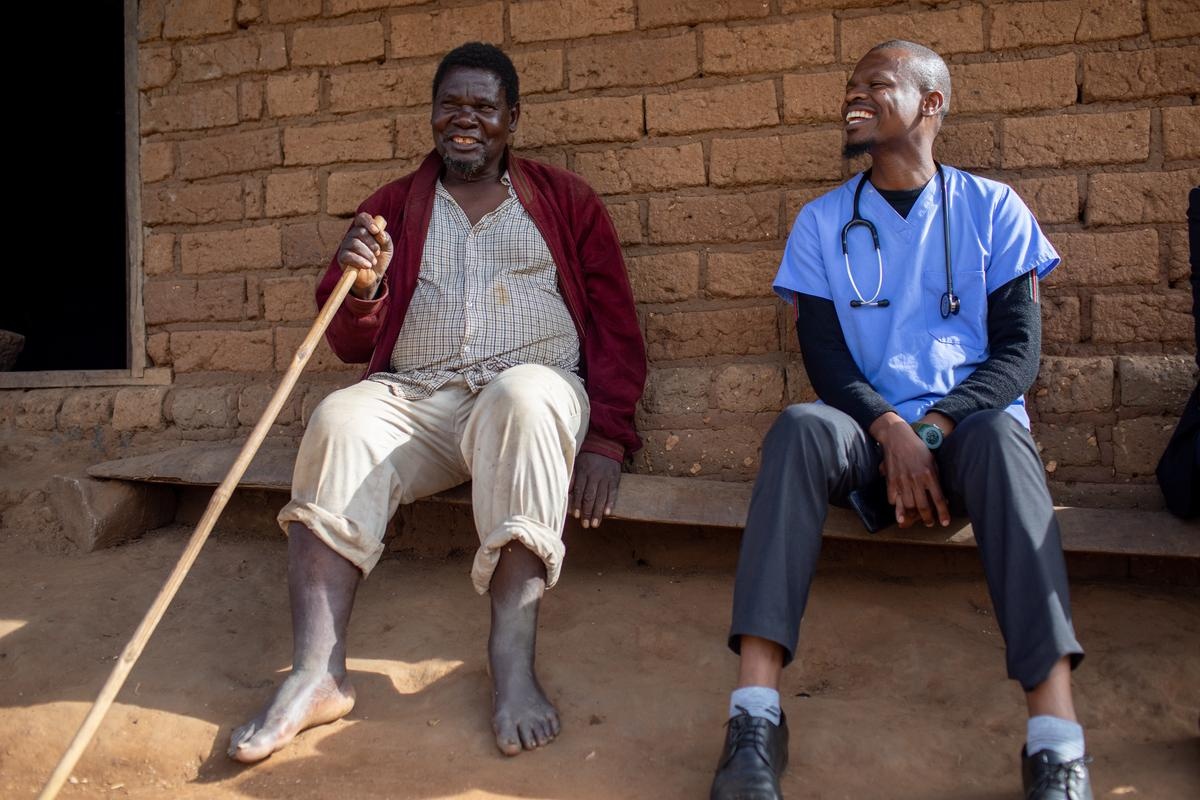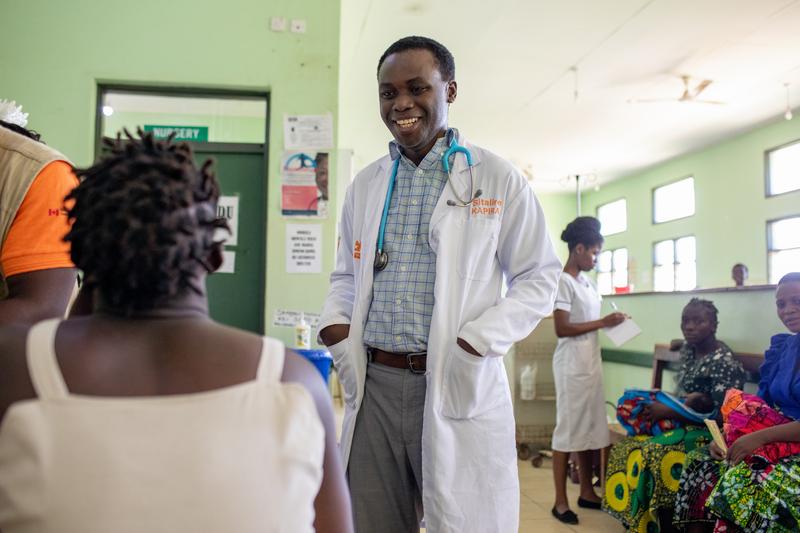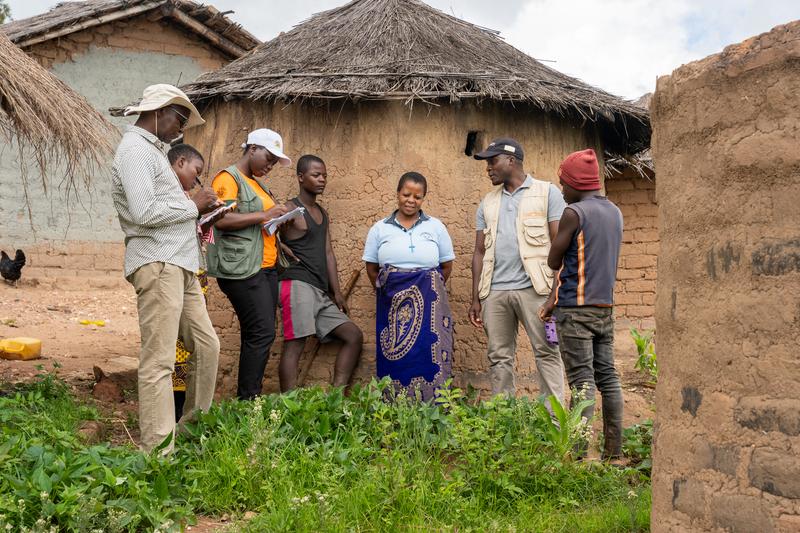In Malawi, PIH Wins Award for Strengthening Health System
Award from Malawian government affirms PIH’s work, mission
Posted on Apr 4, 2024

Neno is one of the most remote districts in Malawi. The district has only one paved road. Just over 3% of households have electricity.
Since 2007, Partners In Health (PIH) Malawi, known locally as Abwenzi Pa Za Umoyo (APZU), has worked in partnership with the Malawian government to provide health care to thousands of people in Neno. In December 2023, all that work was recognized: APZU received an award from two government agencies, the Non-Governmental Organizations Regulatory Authority (NGORA) and the Ministry of Gender.
The award honored APZU for its contributions to the country’s health sector; it was presented at a gala dinner at the state house in Lilongwe, the country’s capital. The award, given for “significant investment in a hard-to-reach-area,” reaffirms APZU’s mission to create a preferential option for the poor in health care by accompanying the public sector and strengthening the provision of essential health services.
Improving Infrastructure
APZU began its work in Malawi in 2007 with the aim of strengthening health services in Neno, a rural district with a population of approximately 165,000 people. At first, APZU focused on providing comprehensive primary and secondary health care, but over the years, the organization expanded its work to support emergency response and sexual and gender-based violence (SGBV).
Before APZU started its work in Malawi, Neno district had one hospital with four inpatient beds, no functioning laboratory, and an unreliable water and electricity supply. This rendered the hospital unable to treat patients with complicated medical conditions, who had to be referred to Mwanza District Hospital, 50 miles (80 kilometers) away.
When APZU arrived, one of the key areas it invested in was infrastructure development. In partnership with the Ministry of Health, APZU constructed Neno District Hospital (2007-2009), Lisungwi Community Hospital (2008-2010), and Dambe Health Center (2016), making crucial health services available in the district.

Despite constructing modern, well-equipped hospitals, the District Health Office observed that there was high staff turnover due to lack of housing in the area. To resolve this, APZU constructed over 30 staff houses to accommodate health workers. These homes are located near Neno District Hospital, Lisungwi Community Hospital, Dambe Health Center, and Chifunga Health Center.
Through its Program on Social and Economic Rights (POSER), APZU has also constructed over 100 houses and renovated over 300 others for the most vulnerable people, such as patients with non-communicable disease (NCDs), the elderly, child-headed households, and those living with disabilities.
APZU’s infrastructure work has extended beyond hospitals and homes. In 2010, APZU opened Malawi’s first-ever rural microbiology laboratory, making Neno District Hospital the first district hospital in the country to perform routine blood cultures and facilitating testing, treatment, and care. APZU also constructed “Dr. Keith Road,” from Lisungwi Community hospital to Neno District Hospital, to shorten travel time between the two facilities, which are about 42 miles (68 km) apart.
A strong health system requires more than buildings and roads—resources like electricity are also essential. In response to frequent blackouts, which affect the operations of most hospitals in Malawi, APZU supported two of its hospitals and Dambe Health Center with backup high-capacity generators to ensure a 24/7 supply of electricity. It also supplied solar-powered refrigerators to all 14 health centers in Neno to help them store drugs in need of refrigeration.
Providing Community-Level Care
PIH’s efforts to strengthen the health system in Neno go beyond infrastructure. In 2007, PIH Malawi started the community health worker (CHW) program. CHWs assist the government with screening and referring patients to nearby health facilities. CHWs also play a pivotal role in helping patients follow their treatment plans.
CHWs, who are volunteers from the community, visit 20-40 households each month to monitor the health of every individual. This approach has improved the early detection and treatment of patients with various health conditions. For instance, in 2022, household visits by CHWs increased from 90% to 94%, and 14,850 referrals were made to health facilities. CHWs also accompanied over 1,500 pregnant women to their first antenatal clinic visit.
On a typical day, and even during emergencies, the CHWs help APZU identify community members that need social support. Through POSER, CHWs work with the District Social Welfare Office to assess households before providing social support, such as cash transfers, food, and milk for infants.

APZU also provides free health screenings and education at the community level. Through APZU’s mobilization and outreach services, 51% of people screened at the community level have been referred to health facilities for further care. APZU has also conducted social dialogue sessions on sexual and gender-based violence (SGBV) in the communities, focusing on root causes, community empowerment, prevention, and reporting. APZU has supported the management of 487 SGBV cases as of November 2023.
Additionally, to empower youth in Neno, APZU established adolescent clubs called SKILLZ BLA (Bwalo La Achinyamata), which have provided education and resources to 816 adolescents (10-14 years old) across the district, making sexual and reproductive health services accessible. Currently, APZU is establishing Mental Health Clubs in schools to equip youth with the necessary skills and knowledge to deal with common mental health conditions.
The award highlights APZU’s past and ongoing work, which has been critical in strengthening Malawi’s health system and expanding access to care. It’s an honor that APZU Executive Director Basimenye Nhlema takes pride in.
“This award is not just for us as PIH Malawi team, but also [for] all our stakeholders who, because of the combined efforts, have made this possible,” she said. “It will always be a reminder for us to work even harder as we serve our beneficiaries. We will treasure this award as we strive to provide preferential option for the poor in health care in Neno and across the country.”

